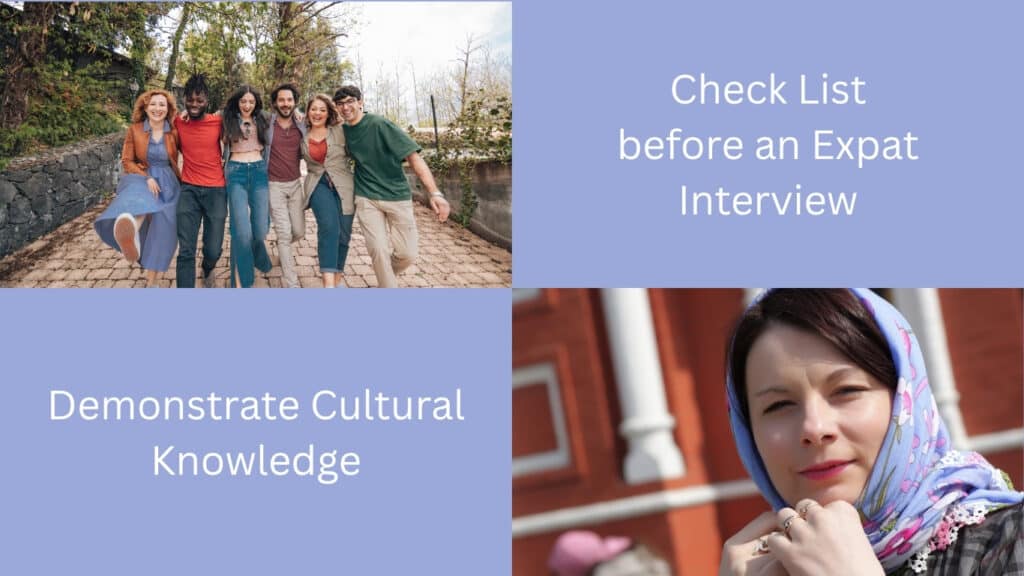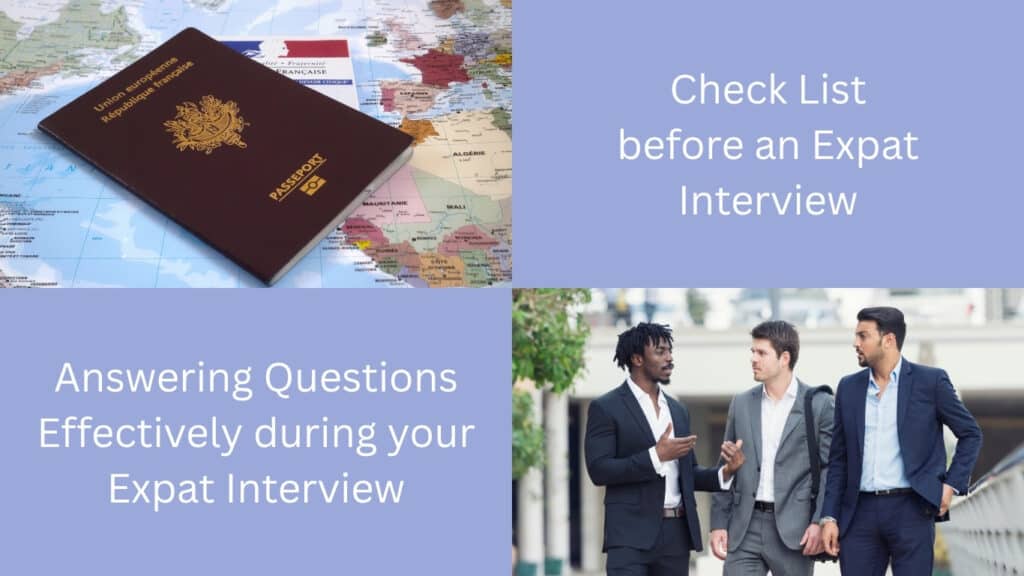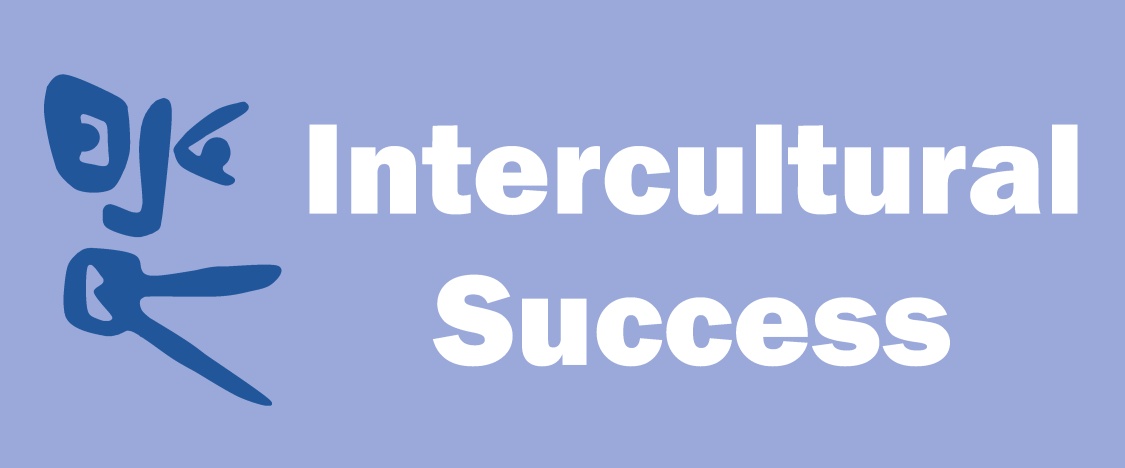You have been offered an expat interview and have the chance to work in another country. It is an exciting opportunity, but how do you prepare for the interview in a way that will help you succeed?
An expat interview often includes more than the usual considerations, and showing cultural awareness and adaptability is just as important as demonstrating your professional experience.
This article focuses on preparation and then delivery style for your expat interview.
A look at the Fundamentals of an Expat Interview
Before the Expat Interview: Do Your Research
Understand the Culture
Culture plays a crucial role in international assignments. Begin by researching the culture of the country where the role is based.
How do people communicate?
How are professional relationships built?
It is equally important to consider the company’s internal culture, especially if it has a Head Office in a different country to the one where the role is located.
A strong understanding of both local and corporate cultures will help you respond more appropriately during the interview.
Greetings and Formality
Find out whether people commonly use first names or prefer titles and surnames. This will vary depending on the culture and perhaps the seniority of the person you are addressing. Similarly, research the level of formality expected in conversation and dress. Some cultures are highly formal in business settings, while others are more relaxed.
Tone and Positivity
A positive tone is usually welcomed, but the level of enthusiasm considered appropriate can vary. In some countries, being too upbeat might come across as insincere, while in others, it might be essential to show high energy and excitement.
Questions to Ask
Prepare a few thoughtful questions to ask at the end of the interview. Three to five is usually enough. Make sure they are relevant to the role and show your interest in the company and its operations in the new location. Questions about the team structure, goals for the assignment, or workplace culture are suitable.
Demonstrate Cultural Knowledge

You can show your understanding of cultural differences by referencing relevant experiences, adapting your communication style, and showing awareness of local customs and values. It is a way to subtly demonstrate that you have already started to think about life in the new country.
Compare Interview Styles
Interview formats can differ widely from one country to another. In some places, interviews are highly structured and direct. In others, they may be more conversational and informal. Try to learn about these differences beforehand so you are not caught off guard.
Practical Preparation for an Online Expat Interview
If your interview is taking place online, it is vital to set up your environment carefully.
Technical Setup
Choose a quiet location with a reliable internet connection. Make sure your phone is on silent but keep it nearby in case you need it. Close any applications on your computer that might interrupt the call.
Your Surroundings
Be aware of what is visible behind you. If you use a fan, check that it is not distracting or noisy. If your location is prone to traffic noise, test your microphone to see how much sound it picks up.
Other Considerations
Have a glass of water nearby but place it out of the way to avoid accidents.
Dress in professional office wear. If you are in a hot climate and your interviewer is based in a colder one, avoid wearing anything that looks like holiday clothing.
Look into the camera rather than at the screen. If this feels awkward, place a photo of a friend or family member near the camera to help you engage more naturally.
Practice
Do a practice interview with a friend or relative. They can point out anything distracting in your background or body language that you might not notice yourself. Having a practice may also increase your confidence and reduce the level of your nerves.
Prepare Strong Answers for your Expat Interview
You can’t prepare for all the questions which will come up. However, it is a good idea to have a clear, interesting, and relevant answer to the following.
Why do you want to work abroad?
This is a key question. Offer a detailed answer that goes beyond personal change or lifestyle. Talk about learning or practising a language, understanding another culture, gaining international experience, or exploring a different side of the company.
Avoid saying you want a change or are tired of your current country. Instead, present yourself as someone who seeks growth and values new challenges.
What international experience do you have?
Mention experiences that show your ability to adapt and learn, such as study abroad programmes, internships, or work with international teams. Avoid focusing on holidays, which do not necessarily demonstrate professional or cultural adaptation.
Can you describe a time you worked with people from different backgrounds?
Use examples from your job, studies, or voluntary work to show how you worked effectively with people from other cultures. Highlight what you learned and how it helped you succeed.
Even if you are not asked this, having a well thought out answer may mean you can include it elsewhere in the interview.
What skills will help you adapt to another country?
Think carefully about this. Avoid repeating points made earlier in the interview. Mention any conversations you have had with people who have worked abroad, or describe personal qualities such as resilience, curiosity, and adaptability.
Answering Questions Effectively during your Expat Interview
If you are nervous or if the interview is in your second or third language, then use the STAR technique to structure your responses.
Situation – set the scene
Task – explain your responsibility
Action – describe what you did
Result – share the outcome
Take a moment to check your understanding of each question. It is better to ask for clarification than to answer based on a misunderstanding. Speak at a steady pace and do not let nerves cause you to rush.
Asking About the Assignment
When asking questions at the end of the interview, focus on the role rather than the benefits. You can ask about those later. Consider questions such as:
• What is the work culture like, including office attendance and remote working?
• What are the long-term goals for this assignment?
• How will success in the role be measured?
Conclusion to How to Succeed at an Expat Interview
A successful expat interview relies on more than professional expertise. It is also about showing cultural awareness, adaptability, and genuine interest in working in a new environment.
Prepare thoroughly, present yourself with confidence, and keep your focus on how you can contribute while continuing to grow personally and professionally.
With the right approach, you will not just impress your interviewer but also set yourself up for a rewarding international experience.
Check List before an Expat Interview

Before the Interview
• Research the country’s business culture (formality, hierarchy, communication style).
• Understand the company’s culture and values, including Head Office influences.
• Find out the correct way to address interviewers (first name or title/surname).
• Learn about interview etiquette in that country (formality, tone, pace).
• Prepare 3–5 thoughtful questions to ask about the role and the assignment.
• Prepare to demonstrate cultural awareness subtly in your responses.
Practical Setup for Online Interviews
• Choose a quiet location with a strong Wi-Fi signal.
• Put your phone on silent but keep it nearby in case of issues.
• Close all unnecessary apps and tabs on your device.
• Check the background of your video for distractions or clutter.
• Test your microphone for noise pickup (especially traffic or fans).
• Have a glass of water but place it safely away from electronics.
• Dress in appropriate business attire (not too casual, even in hot climates).
• Look into the camera while speaking (use a photo near the lens if needed as a prompt).
• Practise a mock interview with a friend or mentor.
Content Preparation
• Prepare a compelling answer to “Why do you want to work abroad?”
(Focus on growth, cultural interest, language, new challenges.)
• Prepare relevant examples of past international experience (not holidays).
• Choose a strong STAR example for working with people from diverse cultures.
• Think about skills that help you adapt abroad (avoid repeating previous answers).
• Prepare to speak clearly, check question understanding, and manage pace.
Questions to Ask
• What is the expected office vs remote work culture?
• What are the main goals for this assignment?
• How is success measured in this role?
Further information when preparing for an Expat Interview
Background information on political, economic, and social context of different countries.
Company reviews and sample interview questions. Good for understanding interview culture.
Global expat community with forums and country guides.
Further reading
An expat assignment – what do you need to think about?

Intercultural Success Coaching
Are you responsible for team members who are deciding about going expat, or do you have team members already working expat who are finding it challenging to adapt to their new life in a new country? Intercultural Success can support your leadership challenges, and work with your team members to make the next step in their career a successful one.
We have decades of experience and have helped hundreds of leaders and managers across the world manage expatriation and repatriation challenges.
Contact us today to discuss your challenges.

